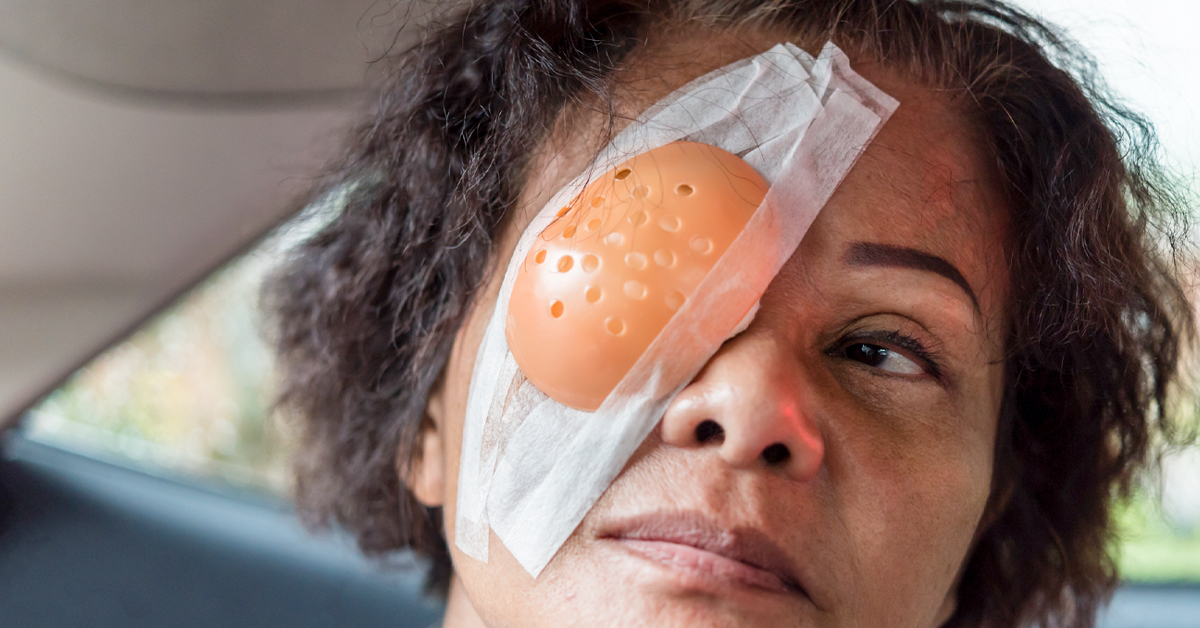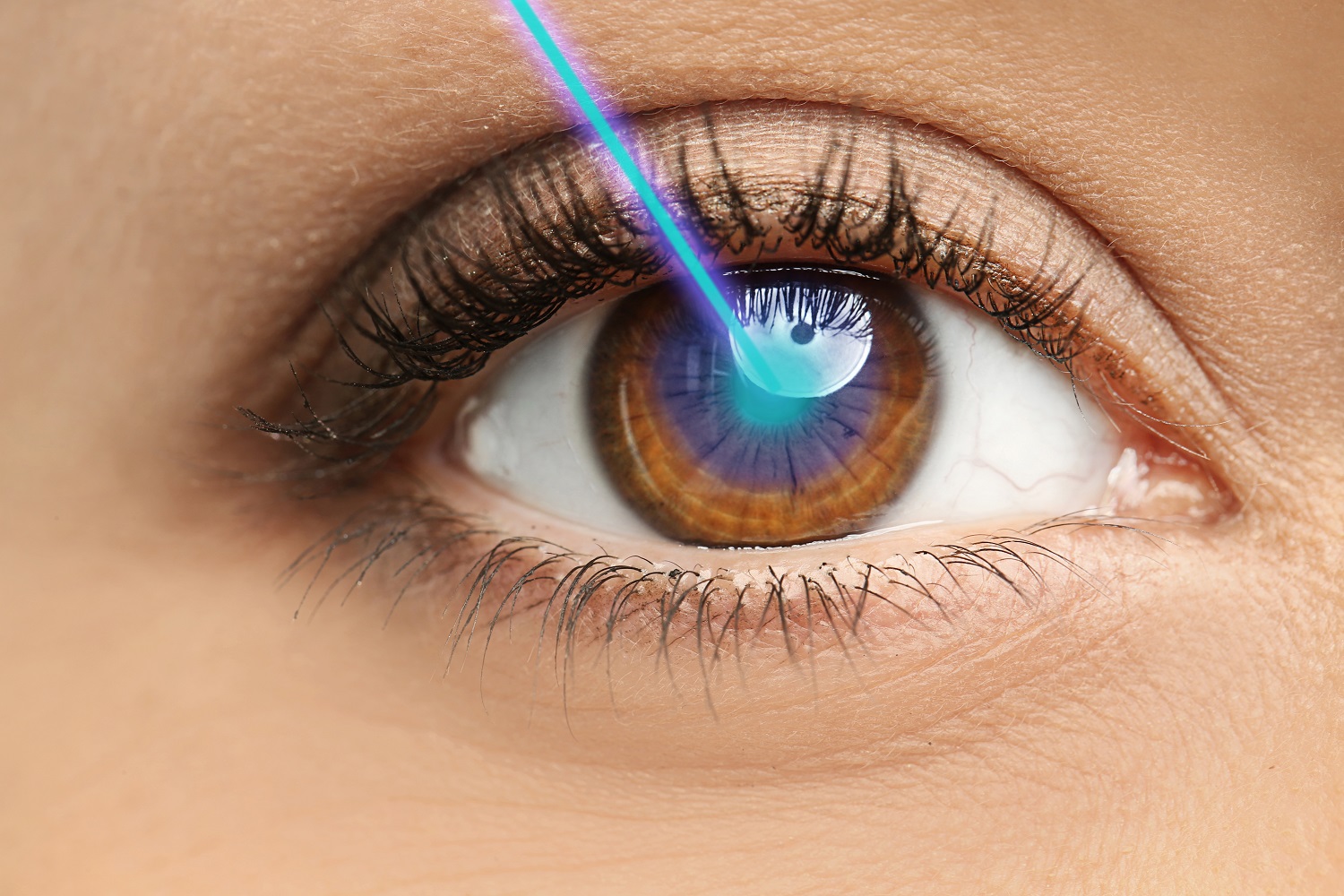The acronym LASIK stands for Laser-Assisted in Situ Keratomileusis. Also known as laser eye surgery, this surgical treatment is designed to restore eyesight precisely while also allowing for rapid recuperation. Other laser treatments and refractive laser eye surgery procedures modify the structure of the cornea by creating slits in it and shaping the eye lens with a laser. Alternative refractive laser eye surgery and laser treatments include the following:
- Advanced Surface Ablation
- Radial Keratotomy
- Photorefractive Keratectomy
- Enhancement Surgery.

On the other hand, the laser eye surgery technique includes restructuring the corneal tissue. It entails the removal of a tiny quantity of corneal tissue. After reshaping the cornea, a circular flap is opened in the middle and subsequently replaced. This procedure will rectify the eye lens’s focusing power, allowing for clear vision.
By 2050, more than half of the world’s population will be myopic. We are becoming increasingly reliant on spectacles and contact lenses. Another technique for reversing myopia is laser therapy. Your ophthalmologist may recommend LASIK eye surgery to correctly cure refractive disorders such as myopia, hyperopia, or astigmatism. So, what exactly is laser eye surgery? Laser eye surgery is a common procedure for correcting nearsightedness, farsightedness, and other defects in the cornea or lens of the eye.
What are the advantages of laser eye surgery?
- It is completely painless.
- It takes less than a quarter of an hour to do surgery on both eyes.
- Within 24 hours of operation, vision stabilizes.
- After surgery, no bandages or sutures are required.
- Years later, if vision fluctuates with age, it can be corrected.
What should I do to prepare for laser eye surgery?
- Patients who wear contact lenses will be recommended to discontinue use two to three weeks prior to surgery.
- The eye surgeon checks the patient’s eyes and medical history.
- Corneal thickness, pupil dilation, ocular pressure, corneal mapping, and corneal mapping are all examined.
- Before surgery, numbing eye drops are applied to the patient’s eye to alleviate any discomfort that may arise.
- In certain instances, medicines are used to induce relaxation during the course of the therapy.
- On the day before surgery, patients are instructed to have only a light meal.
What may I expect following surgery?
You may have transient itching and burning sensations in your eyes immediately following surgery. While the majority of patients get instant clear vision following the surgery, a minority may experience temporary blurred vision. Avoid rubbing your eyes or driving until your eye is totally healed.
What dangers exist?
Blindness is a rare occurrence unless the doctor makes an error when constructing the flap. Laser eye surgery on a thin cornea may potentially result in blindness. Other annoyances such as glare, halos, fluctuating vision, and dry eyes may occur infrequently.
Who is ineligible for laser eye surgery?
Patients who are younger than or in their early twenties and have an inconsistent refractive power. Patients who may be experiencing hormonal shifts as a result of disorders such as diabetes. Those who have visionary fluctuation as a side effect of the medicine. Mothers who are pregnant or nursing. Individuals who engage in close contact sports such as wrestling and martial arts on a regular basis.

Under no circumstances should a patient agree to surgery owing to someone else’s influence. Consult an eye health specialist about the risks associated with laser eye surgery prior to making a choice.
In terms of surgical procedures, laser eye surgery is a very simple and painless process. Our trained surgeons can permanently enhance your vision using a cold pulse laser, which eliminates tissue smaller than a fourth the diameter of a human hair.
However, your eyes are extremely delicate and valuable organs, and you must do all possible to aid in their recovery following treatment. By following the guidelines below, you can maximize your eyes’ chances of recovering quickly and preventing some of the uncommon issues that may occur.
Recuperate
You’ll need to give your eyes and body total rest in the hours following surgery. Following your treatment, you will be escorted to a relaxation area. You’ll need to arrange for someone to accompany you home, as driving is prohibited immediately following laser eye surgery.
If you’ve had laser eye surgery, the cornea will begin to mend within hours, but you should still exercise caution.
Avoid rushing returning to work.
You should allow your eyes as much time to recuperate as possible during the first several days following laser eye surgery. That involves avoiding activities that place undue pressure on your eyes. For the first couple of days, it’s best to avoid prolonged screen time, as well as hobbies like reading and playing video games.
While some individuals return to work the next day, it is frequently advisable to take some time off, especially if your job requires you to use your eyes. Each person is unique, and your surgeon will be able to advise you on the best course of action.
Avoid rubbing
This is a hard one since the temptation is to touch your foggy eyes, particularly if they feel dry or tingly. However, you must fight the impulse to scratch an itch.
It is conceivable that prolonged contact will reverse part of the work performed after surgery, resulting in a setback necessitating more therapy. Your surgeon will prescribe eye medications to alleviate the dryness, and the remainder is up to you.
Put on sunglasses
Your eyes will become increasingly sensitive in the days and weeks following surgery, and you must shield them as much as possible. If you’re going outside, wear sunglasses with enough UV protection to reduce the amount of light that enters your eyes. This is especially critical on bright days.
Absence of driving
Driving on the same day as laser eye surgery is illegal, so you will need to arrange for a friend or family member to help you in getting home. This is because you will have been given anesthetic eye drops and maybe a small sedative to assist you in relaxing throughout the procedure.
You will need to return to the hospital for a follow-up appointment a few days following surgery, at which point your surgeon will determine if you are fit to drive. Additionally, you may seek to have your driver’s license changed to indicate that you are no longer in need of corrective glasses.
Not showers, but baths
It is sometimes stated that the world is divided into two categories of people: those who bathe and those who shower. In the weeks after therapy, you should firmly establish yourself as a bath person. This is because you must attempt to prevent water from flowing into your eyes, which might create complications with recent therapies.


